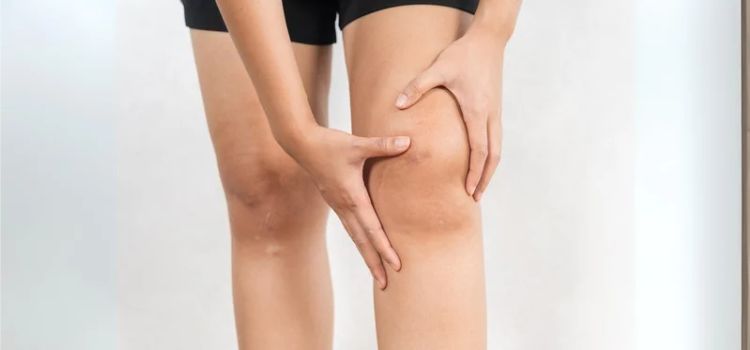Knee braces are important tools for many people, offering support and stability during recovery from injuries or when managing chronic disorders. While these devices are very helpful, there are growing concerns about potential health risks, such as blood clots. Can a knee brace cause a blood clot? This is a significant question, especially for those who depend on braces for everyday mobility.

Understanding the balance between the benefits of knee braces and their potential risks is crucial to ensure safe and effective use. Let’s explore how knee braces work and the potential issues associated with them.
Blood Clots: Causes and Symptoms
What are blood clots?
Blood clots are clumps of blood that have changed from a liquid to a gel-like state. While they play a crucial role in stopping bleeding, they can become dangerous when they form inappropriately within blood vessels. These unwanted clots can obstruct blood flow, potentially leading to serious conditions like deep vein thrombosis, heart attacks, or strokes.
Factors Contributing to Knee Brace Cause Blood Clot
Several factors can contribute to the formation of blood clots:
Symptoms of Blood Clots
Recognizing the symptoms of blood clots is essential for appropriate treatment. Common symptoms include:
Can a Knee Brace Cause a Blood Clot?
While it’s not common, knee brace don’t cause a blood clot. However, there is a potential risk that may lead knee brace causing a blood clot. Knee braces are designed to provide support and stability, particularly after injuries or surgeries. However, if a knee brace is too tight, it can restrict blood flow in the leg. This reduced circulation can contribute to the formation of blood clots, especially if combined with other risk factors like immobility or an underlying health condition.
An overly tight brace can compress blood vessels, which leads to impaired circulation. Furthermore, wearing a brace for long periods without moving can raise the risk. To reduce these risks, you need to know how to use the brace effectively, including the duration and tightness of usage. You also need to know which knee braces are best for you. Regular mobility and ensuring the brace isn’t too tight are essential for preventing blood clots while benefiting from its support.
Studies and Medical Opinions of Knee Braces Link with Blood Clots
Research indicates that while knee braces themselves do not directly cause blood clots, certain conditions and factors associated with their use can increase the risk.
A research published in the Journal of Bone and Joint Surgery investigated cases where patients wearing knee immobilizers (a form of knee brace) developed deep vein thrombosis. The findings revealed that extended immobility and restricted movement, which are frequent during post-operative recovery or when wearing a brace, could contribute to clot formation.
Medical viewpoints underline the need for good knee brace fit and use. Orthopedic specialists frequently advise against wearing knee braces that are too tight to allow for proper blood circulation. They also emphasize the need to keep patients mobile and do the suggested activities to avoid clotting.
Conclusion
In conclusion, while knee braces are valuable tools for providing support and aiding recovery from knee injuries or surgeries, they come with considerations regarding blood clot risks. It’s crucial to strike a balance between the benefits of using a knee brace and the potential for complications like reduced blood flow and clot formation.
Finding the best knee brace for your needs, avoiding lengthy immobilization, and being active are all important ways to avoid injury. Medical research supports these claims, highlighting the significance of caution and regular monitoring for anyone using knee braces. Particularly those with pre-existing health issues or undergoing post-operative recovery. You have to stay informed and follow medical advice to optimize the benefits of knee braces while reducing possible risks.
🔗Related Ecssla -Health Tips & Tricks:
- Will a Knee Brace Help With Sciatica Pain
- How to Protect Your Knees on the Elliptical – Reason and Solutions
- The 5 Best Ankle Braces for Basketball Players: 2024 Reviews
- Best Knee Brace For Cycling: Reviews & Recommendations
FAQs About The Link Between Knee Brace and Blood Clot
Tight knee braces can affect blood flow, increasing the risk of blood clots in sensitive persons. It’s critical to ensure correct fit and adjust as needed.
While any knee brace could theoretically affect circulation, studies suggest that long-term use, particularly in post-surgical recovery situations, may marginally increase risk.
Regular activity, avoiding extended immobility, and adhering to medical expert recommendations for brace usage and fit are critical preventive strategies.
If you have indications of a blood clot, such as swelling or warmth in your leg, get medical attention immediately. Your medical professional will advise on the best course of action.
Please inform your doctor about any medical conditions, drugs, or history of blood clots. They can offer individualized brace usage advice based on your health needs.

Leave a Reply